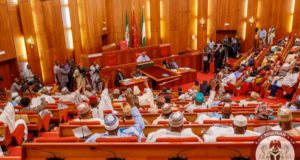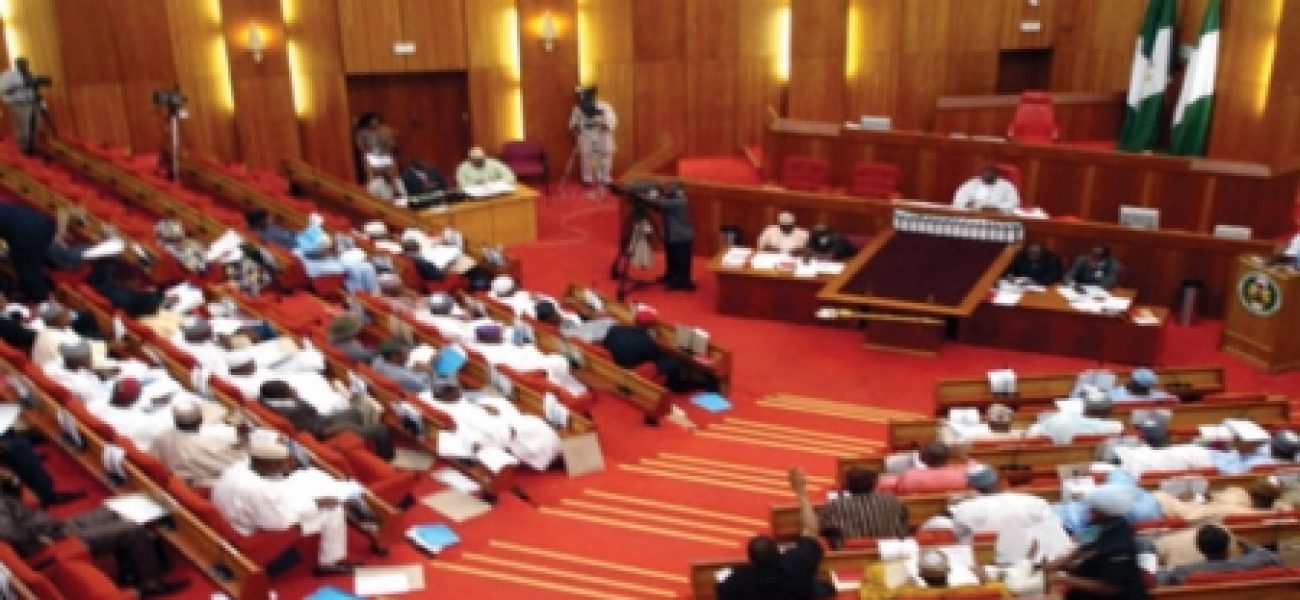 The Senate on October 12th 2017 passed a 9 clause Bill providing a legal framework for the inauguration of the Nigerian President and his Vice after their election has taken place. The Bill intends to have the inaugural ceremony of the President within the confines of the National Assembly in recognition of the fact that the legislature “is the assemblage of the representatives of the entire country ”. Among others, the Bill proposes that the National Assembly organise and execute the inauguration. The Bill also proposes a change of venue from the current Eagle Square in Abuja, Nigeria to the Arcade of the National Assembly . However, the Chief Justice of Nigeria will still be expected to administer their oath of office in line with section 140(2) of the 1999 Constitution as amended. In addition to this, are provisions for a sitting arrangement for members of the National Assembly, principal officers of the Executive, Judiciary, diplomatic community and invited dignitaries that will be co-ordinated by the Clerk of the National Assembly . However, “ordinary Nigerians” and other nationals shall also have access to the venue of inauguration subject to space constraints .
The Senate on October 12th 2017 passed a 9 clause Bill providing a legal framework for the inauguration of the Nigerian President and his Vice after their election has taken place. The Bill intends to have the inaugural ceremony of the President within the confines of the National Assembly in recognition of the fact that the legislature “is the assemblage of the representatives of the entire country ”. Among others, the Bill proposes that the National Assembly organise and execute the inauguration. The Bill also proposes a change of venue from the current Eagle Square in Abuja, Nigeria to the Arcade of the National Assembly . However, the Chief Justice of Nigeria will still be expected to administer their oath of office in line with section 140(2) of the 1999 Constitution as amended. In addition to this, are provisions for a sitting arrangement for members of the National Assembly, principal officers of the Executive, Judiciary, diplomatic community and invited dignitaries that will be co-ordinated by the Clerk of the National Assembly . However, “ordinary Nigerians” and other nationals shall also have access to the venue of inauguration subject to space constraints .
To aid the National Assembly with this exercise, clause 8 proposes a Presidential Inauguration Committee consisting of a serving member of the National Assembly who shall act as Chairman. It also provides for an additional six (6) members drawn from the legislature and two (2) members each from the Executive, Judiciary and Civil Society . Additional members may also be included in the Inauguration Committee as exigencies may demand.
Other provisions include 3 additional sub-committees that will work under the Presidential Inauguration Committee to help it achieve its objective. The sub-committees are charged with ceremonial, security, accommodation, protocol and transportation responsibilities . Under the Bill, the National Assembly would be responsible for appropriating funding for the Committee and its activities at every inaugural year . The Committee is also expected to commence work no later than five months before the inauguration and dissolve immediately after the event . Members of the Committee are further prohibited from continuing service in the Committee after the successful holding of the inauguration.
However, the legal framework provided by this inauguration Bill raises some important issues for deliberation. In the United States, (one of the countries the Bill lends its inspiration from), inaugural ceremony costs are shared through fund raising and taxpayers footing the Bill. For instance, former President Barack Obama’s inaugural committee raised $53 million dollars in 2009 while President Trump’s inaugural committee is said to have raised $ 100 million from his supporters . Therefore, the National Assembly could be more creative by making provisions allowing for fund raising rather than solely relying on appropriating the amount for inauguration.
Also, while it is arguable that creating a legal framework specifically for the inauguration ceremony would help Nigerians with figures of what is actually allocated for a generally expensive event, the Senate report on the Bill failed to mention the actual mischief the Bill is intended to cure. For instance, is there is a gap in the current framework of the inauguration ceremony, which is presently being handled by the office of the Presidency? The Bill also fails to clarify important matters such as whether the amount appropriated will be included as part of National Assembly’s budget or whether it will form part of the national budget in the election year. Also, although the composition of the Presidential Inauguration Committee is clear, this cannot be said of its Sub-committees whose membership is not provided for under the Bill.
The Bill would have also been better drafted if it stipulated a mode for selecting the members of the Presidential Inauguration Committee rather than leaving it open. For example, it could have stated that the chairman of the Committee should be the Senate President or that the Speaker or that the Senate/House leadership should be responsible for the nomination of the Chairman and the 6 members of the legislature in the proposed Inauguration Committee. This is so as although a provision of the Bill mentions that the Clerk to the National Assembly will draw officers from the three arms of government, the Bill fails to give guidance on how he can implement this. It is also silent on how the two members representing civil societies will be nominated into the Committee. It is also suggested that clause 7 (v) of the Bill which was earlier mentioned is further revisited during harmonisation with the House of Representatives so that the Committee commences work no earlier than five months before inauguration rather than no later than five months before inauguration as proposed. This will save costs and still give the Committee enough time to plan and implement the inauguration ahead of time.
There are also other issues that this Bill raises. For instance the composition of the Presidential Inauguration Committee dominated by National Members for an “executive event” raises questions on the issue of separation of powers. Also, while the Senate report canvassed support on the Bill on the basis that a similar structure exists in other jurisdictions like the United States, it failed to take into account some important distinctions between Nigeria’s National Assembly and the United States Congress. For example, the Nigerian National Assembly is inaugurated and dissolved by the Nigerian President via proclamation under section 64(3) and 64(1) of the 1999 Constitution (as amended). The term of years for the National Assembly is also defined under section 64(3) of the Constitution as a four-year term expiring from the date of the first sitting of the House of Representatives. This position is different from the American Congress, which has intervening Congressional elections, which take place every two years in the House of Representatives with staggered six –year terms in the Senate . This constitutional arrangement in the American Senate has been interpreted to mean that it is a continuing body – unlike the inauguration and dissolving of the National Assembly under section 64(3) and 64(1) of the 1999 Constitution (as amended). In addition, unlike the Nigerian National Assembly where the President proclamation precedes the inauguration of a new Assembly, the House and Senate leadership in Congress telephone the President to formally notify him that a quorum of each House of Congress has been assembled and is prepared to work . There is also the issue of whether a preceding National Assembly whose four year term expires few days before a President is elected/re-elected should be given the powers of inauguration despite their high turn over rate. It is arguable that to do so may further increase the friction between the Executive and the Legislature and encourage lack of accountability.
Most importantly, it is still unclear why this Bill has been accorded with priority passage in the Senate while many pro-poor and Governance Bills like the Petroleum Industry Fiscal Bill, Petroleum Industry Administration Bill, Gender and Equal Opportunities Bill have not yet been passed. It is hoped that the Senate and indeed the National Assembly will exert this speed in passing Bills whose impact will be felt on the majority of Nigerians.

